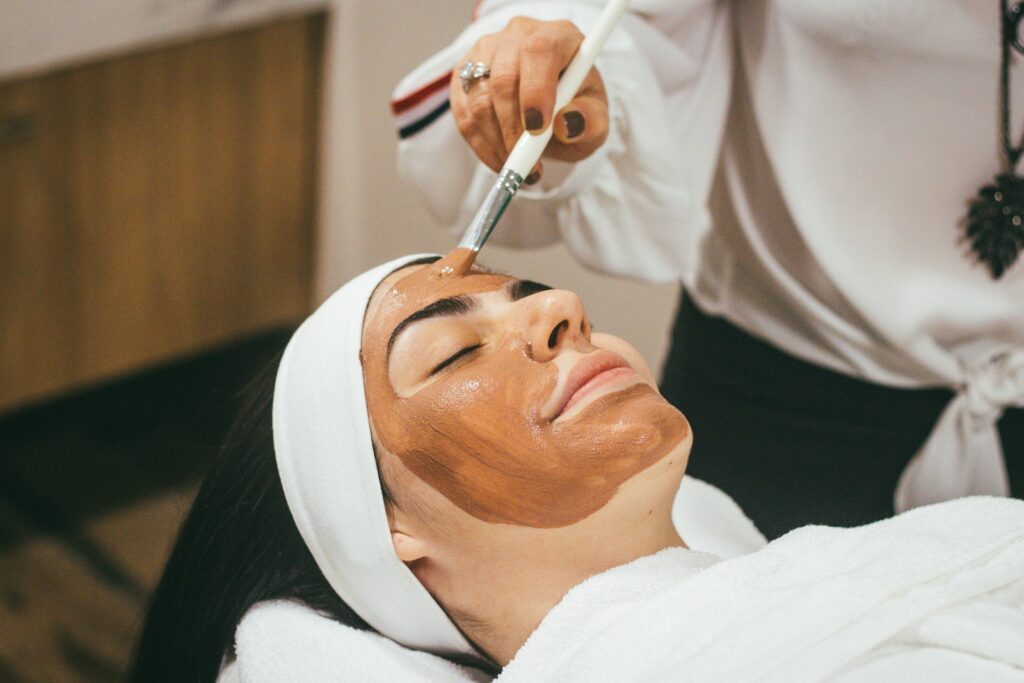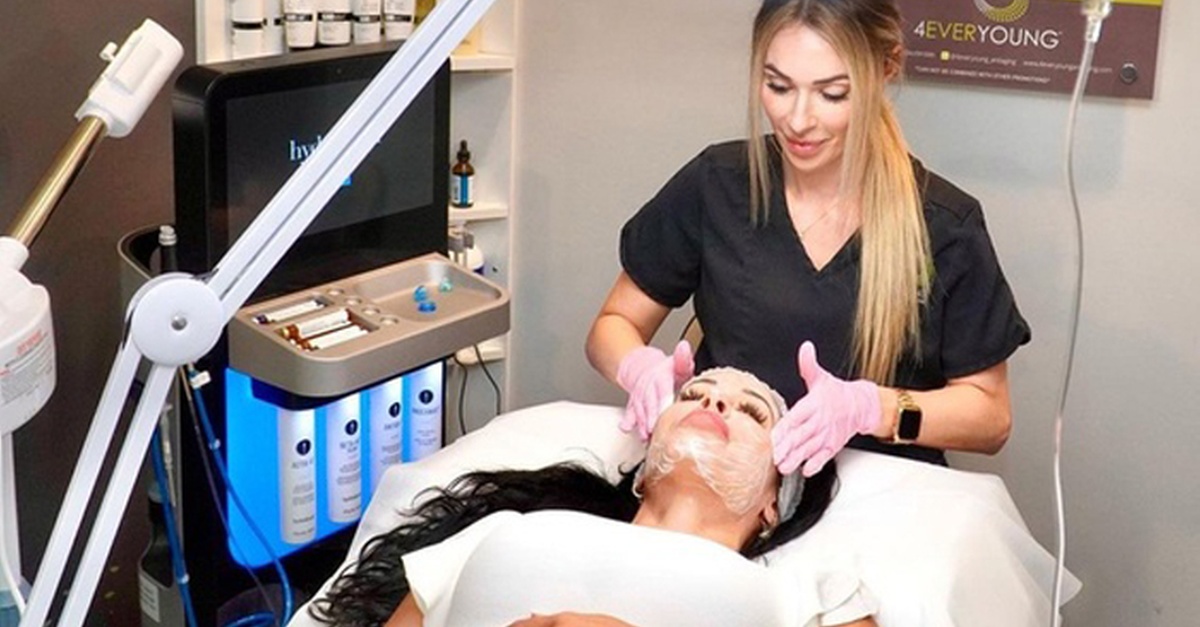
Spa rituals have been used for centuries to promote relaxation, reduce stress, and improve mental well-being. From massages and facials to aromatherapy and meditation, these rituals are designed to help individuals unwind and find inner peace. In today’s fast-paced world, where stress and anxiety are prevalent, spa rituals have become increasingly popular as a way to combat these negative emotions.
Research has shown that spa rituals can have a significant impact on mental health. For example, massage therapy has been found to reduce anxiety and stress, while aromatherapy has been shown to improve mood and promote relaxation. In addition, practices like meditation and yoga can help individuals develop mindfulness and reduce symptoms of depression.
Spa rituals provide a holistic approach to mental well-being by addressing both physical and emotional needs. By taking time to care for oneself through these practices, individuals can improve their quality of life and find a sense of balance in today’s hectic world.
Understanding Stress and its Impact on Health
Stress is a natural response of the body to external or internal stressors. It is a normal part of life and can be beneficial in small amounts, but chronic stress can have a negative impact on both mental and physical health.
When the body is under stress, it releases stress hormones such as cortisol and adrenaline. These hormones can cause physiological changes such as increased heart rate, blood pressure, and breathing rate. Chronic stress can lead to long-term changes in the body, including a weakened immune system, digestive problems, and cardiovascular disease.
Stress can also have a significant impact on mental health. Chronic stress can lead to anxiety and depression, as well as other mental health disorders. It can affect the brain’s structure and function, leading to changes in feelings and emotions.
Stressors can come from a variety of sources, including work, family, relationships, finances, and health problems. Chronic stress can be caused by ongoing stressors that are difficult to manage, leading to a state of constant stress.
Fortunately, there are many ways to manage stress and reduce its impact on health. Spa rituals can be an effective way to reduce stress and promote mental wellness. Spa treatments such as massage therapy, sauna, and mindfulness meditation have been shown to reduce stress and anxiety, increase relaxation, and improve overall mental well-being.
The Role of Spa Rituals in Stress Reduction and Mental Well-being
Spa rituals are an effective way to reduce stress and promote mental well-being. They offer a structured and predictable environment that allows for relaxation and escape from daily life. Spa treatments provide comfort and promote relaxation while also offering a holistic perspective on wellness.
Many spa rituals are designed to promote comfort and relaxation. For example, a spa day may include a warm bath, massage, and aromatherapy. These treatments are designed to promote relaxation and reduce stress. The use of essential oils and aromatherapy can have a calming effect on the mind and body, promoting a sense of well-being.
Spa rituals also offer a structured environment that promotes predictability. The use of rituals and methods can help to create a sense of structure and stability in an otherwise chaotic world. This can be especially helpful for those who struggle with anxiety or stress.
In addition to promoting relaxation and structure, spa rituals also offer an escape from daily life. The spa provides a non-religious space where individuals can disconnect from technology and other distractions and focus on themselves. This can be especially helpful for those who feel overwhelmed by the demands of daily life.
Different Types of Spa Rituals and their Benefits
Spa rituals are known for their ability to promote relaxation, reduce stress, and improve mental well-being. There are several types of spa rituals, each with its own unique benefits. Here are some of the most popular spa rituals and how they can benefit your mind and body.
Massage Therapies
Massage therapies are a popular spa ritual that can help relieve muscle tension, improve blood circulation, and reduce stress. Different types of massages, such as Swedish, deep tissue, and hot stone, can target specific areas of the body and provide different benefits. Massage therapies can also help reduce inflammation and improve heart rate variability.
Aromatherapy
Aromatherapy involves using essential oils to promote relaxation, reduce stress, and improve mental well-being. Essential oils, such as lavender, peppermint, and eucalyptus, can be used in diffusers, candles, or applied directly to the skin during massages. Aromatherapy can also help improve sleep, focus, and mood.
Facials
Facials are a spa ritual that can help improve the health and appearance of your skin. Different types of facials, such as hydrating, exfoliating, and anti-aging, can target specific skin concerns and provide different benefits. Facials can also help improve self-esteem and confidence.
Yoga and Meditation
Yoga and meditation are spa rituals that can help improve flexibility, strength, and mental well-being. Yoga involves physical postures and breathing exercises that can help improve focus, reduce stress, and improve sleep. Meditation involves focusing your mind on a particular object, thought, or activity to reduce stress and improve mental well-being.
Sound Healing
Sound healing involves using sound vibrations to promote relaxation and reduce stress. Different types of sound healing, such as singing bowls, gongs, and tuning forks, can provide different benefits. Sound healing can also help improve energy and mood.
Breathwork
Breathwork involves using breathing techniques to promote relaxation and reduce stress. Different types of breathwork, such as diaphragmatic breathing, alternate nostril breathing, and box breathing, can provide different benefits. Breathwork can also help improve mental clarity and focus.
Qigong
Qigong involves using physical movements and breathing techniques to promote relaxation, reduce stress, and improve mental well-being. Qigong can also help improve balance, flexibility, and immune system function.
In conclusion, spa rituals can provide a variety of health benefits for both the mind and body. By incorporating different types of spa rituals into your self-care routine, you can promote relaxation, reduce stress, and improve your overall well-being.
Scientific Research Supporting Spa Rituals for Stress Reduction
There is a growing body of scientific research that supports the use of spa rituals for stress reduction and improved mental well-being. Studies have shown that spa rituals, such as massage and relaxation techniques, can activate the body’s natural systems for overcoming stress [1].
One study found that just 10 minutes of massage or relaxation can measurably reduce stress levels [1]. Another study found that mind-body approaches, such as progressive muscle relaxation and HRV biofeedback, can be effective in reducing self-reported stress and anxiety [2].
Researchers have also investigated the anxiolytic effects of rituals, such as repetitive movement and cognitive load, and found that they may help reduce existential anxiety and uncertainty [3].
Healthcare workers, in particular, may benefit from spa rituals for stress reduction. A study of nurses found that aromatherapy massage reduced stress and improved sleep quality [4]. Another study found that a 20-minute foot massage reduced stress and fatigue in intensive care unit nurses [5].
Overall, the scientific research suggests that spa rituals can be an effective tool for reducing stress and improving mental well-being. However, it is important to note that more research is needed to fully understand the mechanisms behind these effects and to identify the most effective spa rituals for different populations and contexts.
Conclusion
Spa rituals are an effective way to reduce stress and improve mental well-being. The use of spa treatments such as massage therapy, aromatherapy, and hydrotherapy can help individuals to relax, reduce anxiety, and promote feelings of happiness and self-confidence.
Research has shown that massage therapy can reduce anxiety associated with a number of conditions, including cancer, chronic pain, and psychiatric disorders. Additionally, aromatherapy has been found to have a positive effect on mood, reducing feelings of stress and promoting relaxation. Hydrotherapy, which involves the use of water for therapeutic purposes, can also help to reduce stress and promote feelings of well-being.
Spa rituals can also help individuals to feel more confident in themselves. The use of treatments such as facials, manicures, and pedicures can help to promote healthy skin and nails, which can lead to increased self-esteem. Additionally, the use of saunas and steam rooms can help to improve skin tone and texture, which can also contribute to feelings of confidence.
Overall, spa rituals are an effective way to promote mental well-being and reduce stress. By incorporating these treatments into their regular self-care routine, individuals can experience the many benefits of spa therapy and improve their overall quality of life.
- [1] Medical News Today. “Massage measurably reduces stress.” https://www.medicalnewstoday.com/articles/massage-measurably-reduces-stress
- [2] National Center for Complementary and Integrative Health. “Mind and Body Approaches for Stress and Anxiety: What the Science Says.” https://www.nccih.nih.gov/health/providers/digest/mind-and-body-approaches-for-stress-science
- [3] PubMed. “Rituals, Repetitiveness and Cognitive Load: A Competitive Test of Two Hypotheses.” https://pubmed.ncbi.nlm.nih.gov/30306399/
- [4] Evidence-Based Complementary and Alternative Medicine. “Aromatherapy Massage on the Abdomen for Alleviating Menstrual Pain in High School Girls: A Preliminary Controlled Clinical Study.” https://www.hindawi.com/journals/ecam/2013/740940/
- [5] Journal of Clinical Nursing. “Effects of foot massage on pain and fatigue in patients undergoing hemodialysis: a randomized controlled trial.” https://onlinelibrary.wiley.com/doi/abs/10.1111/jocn.13673

